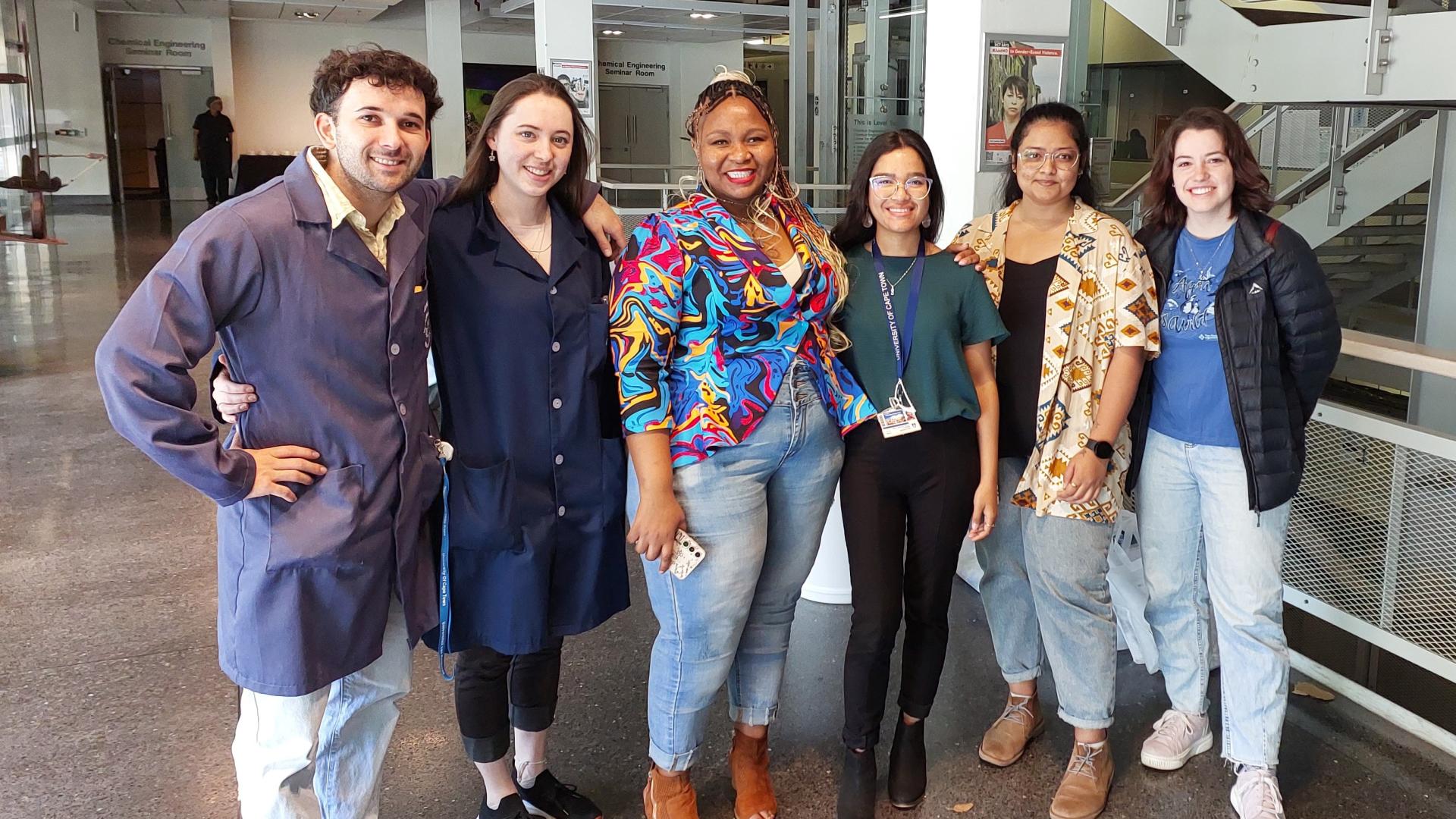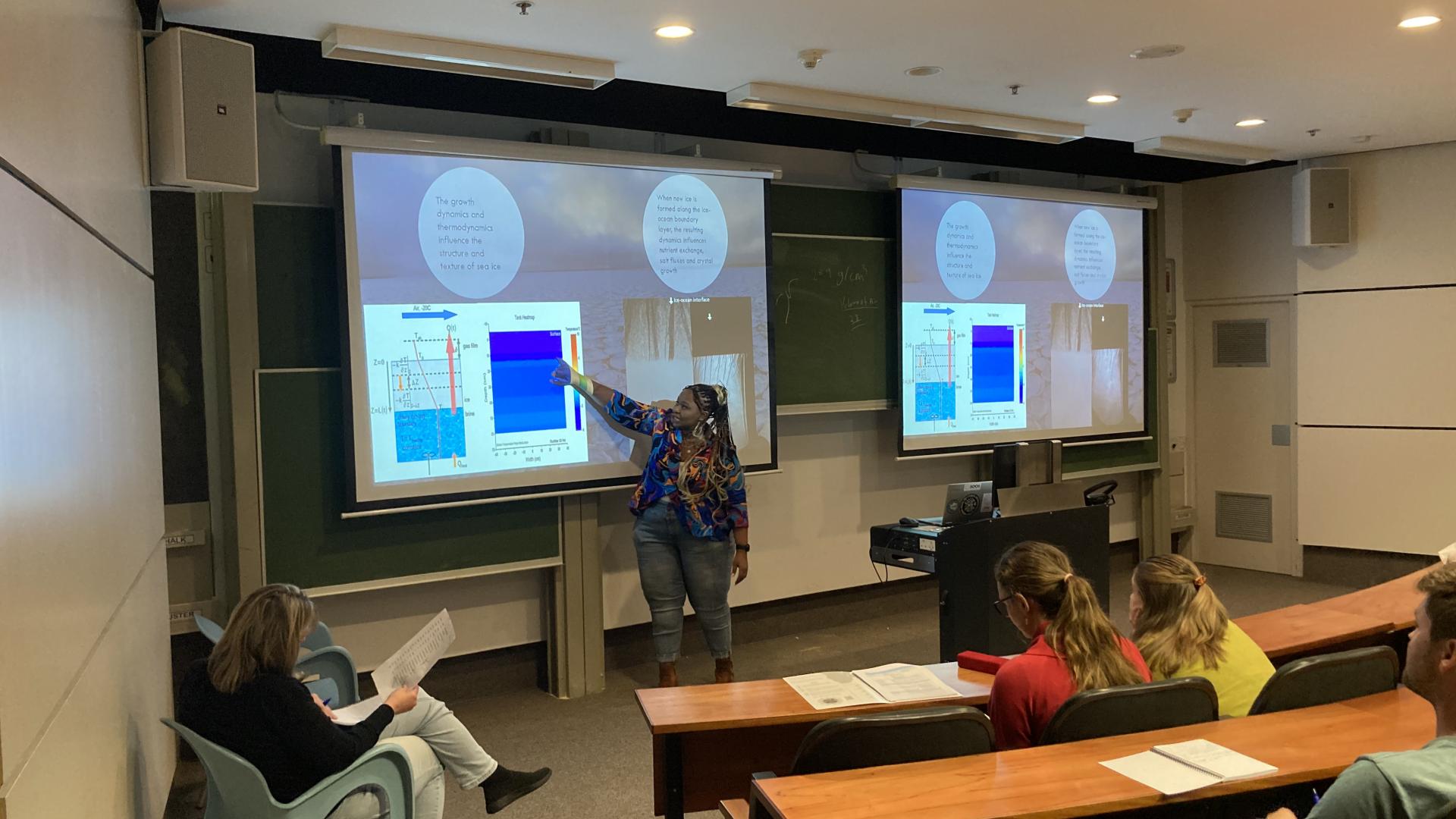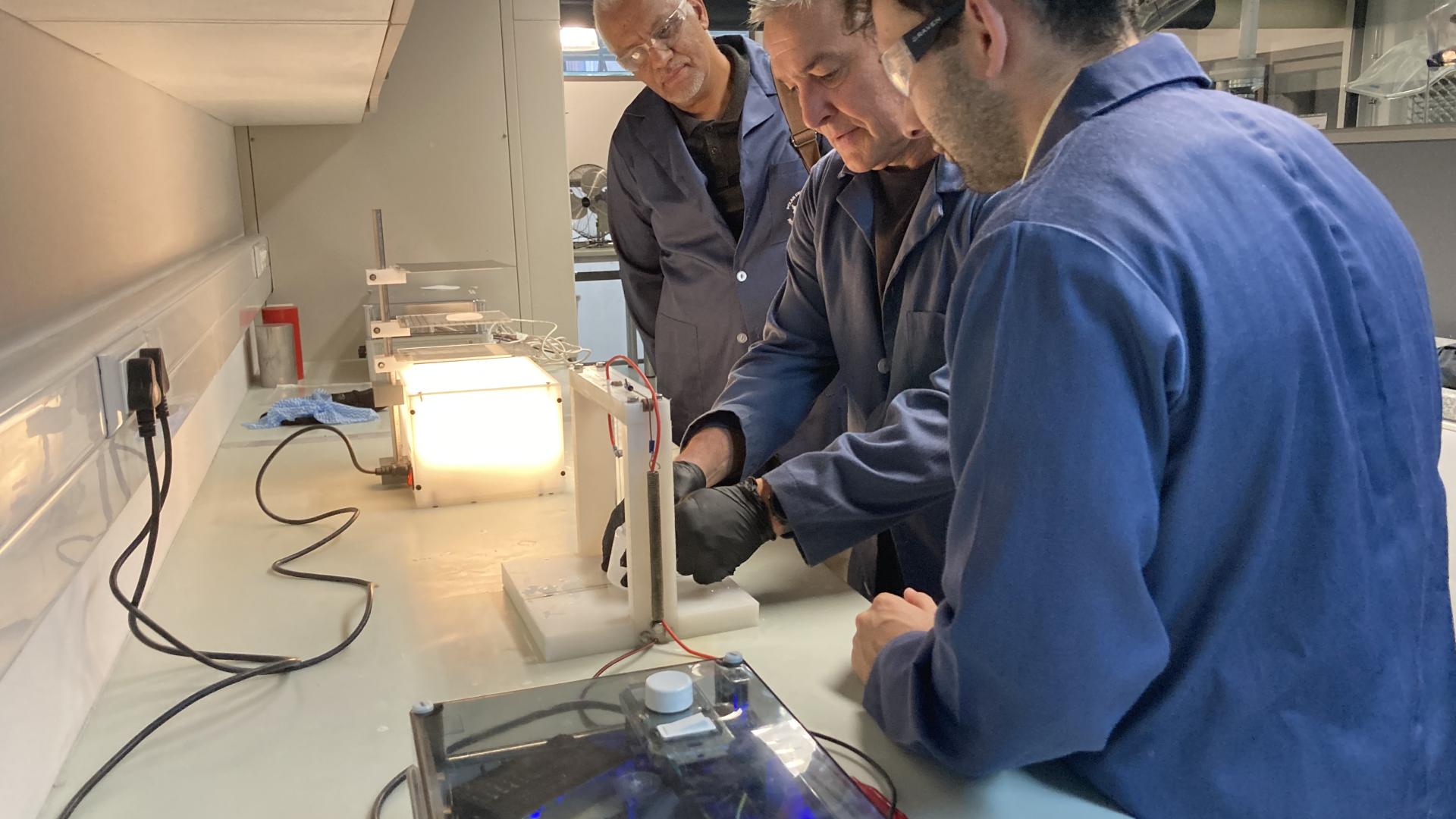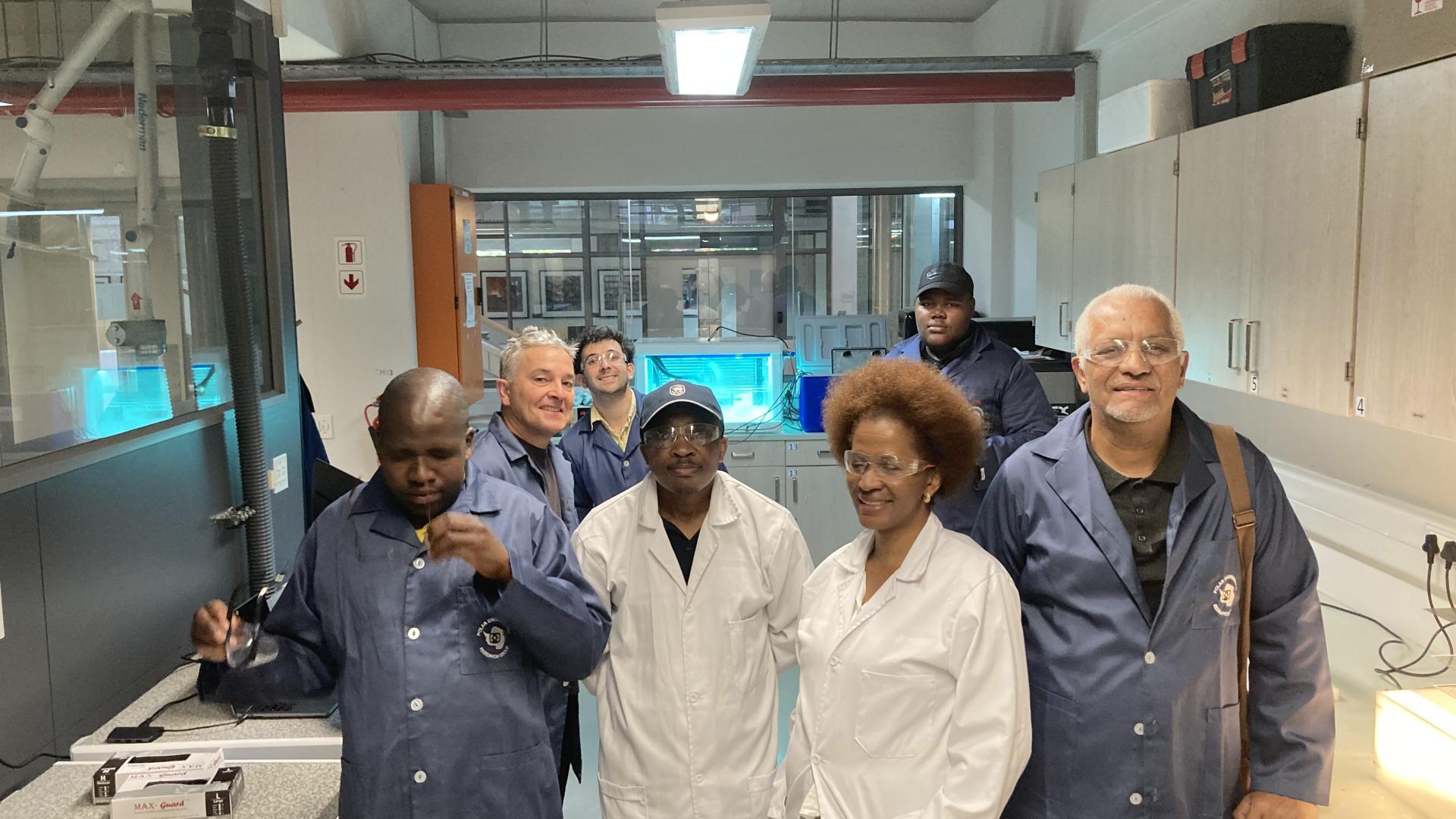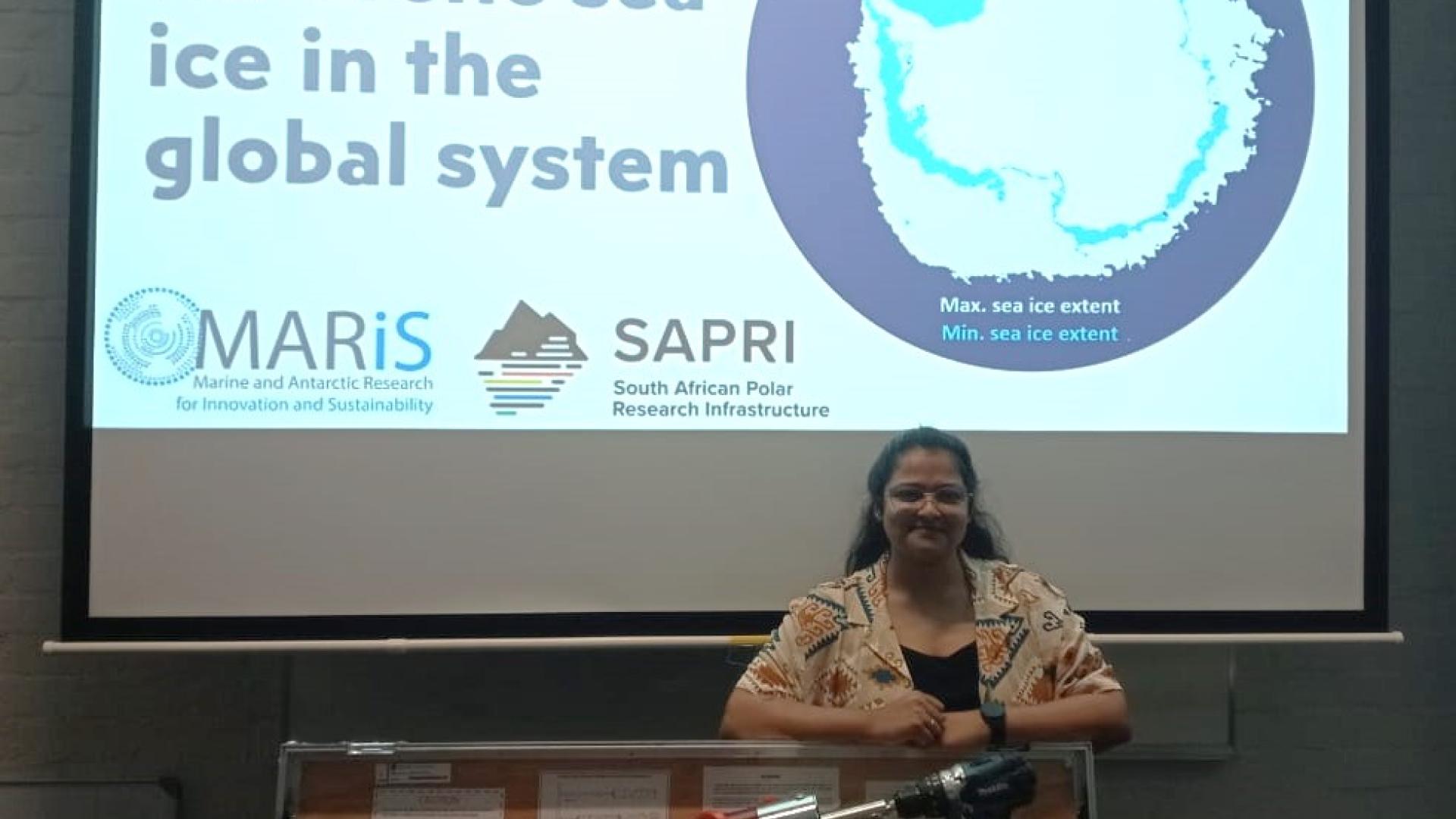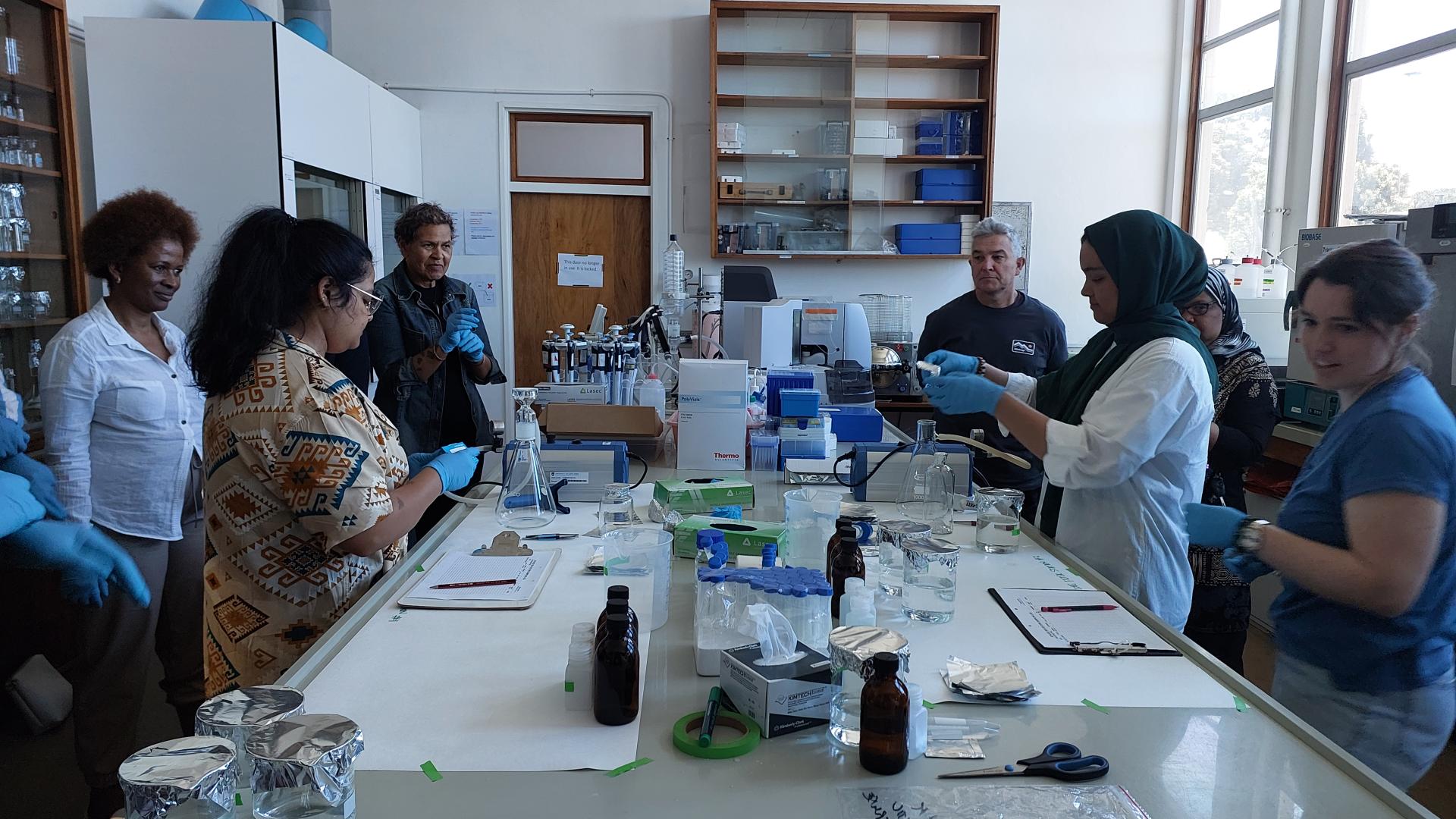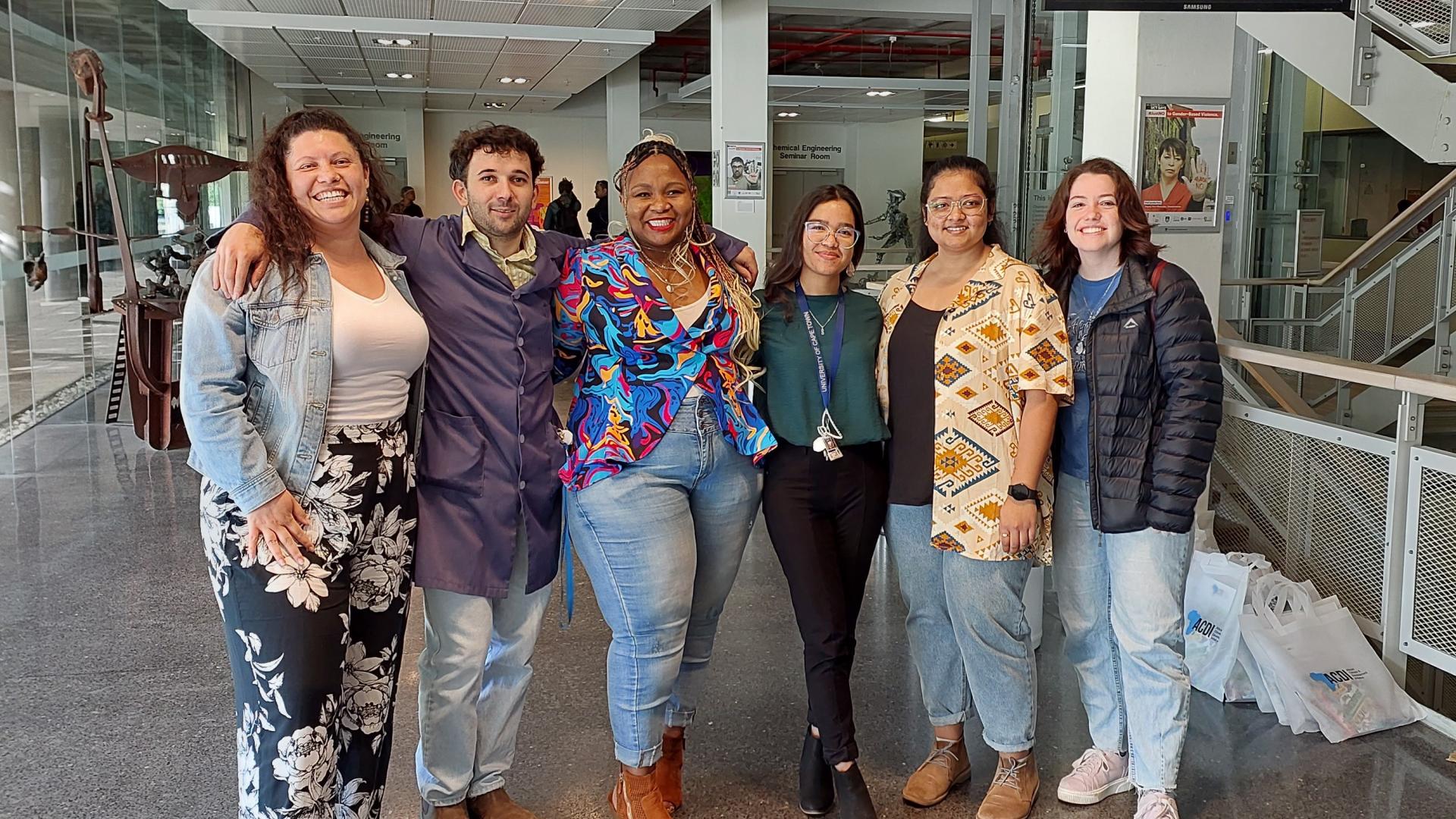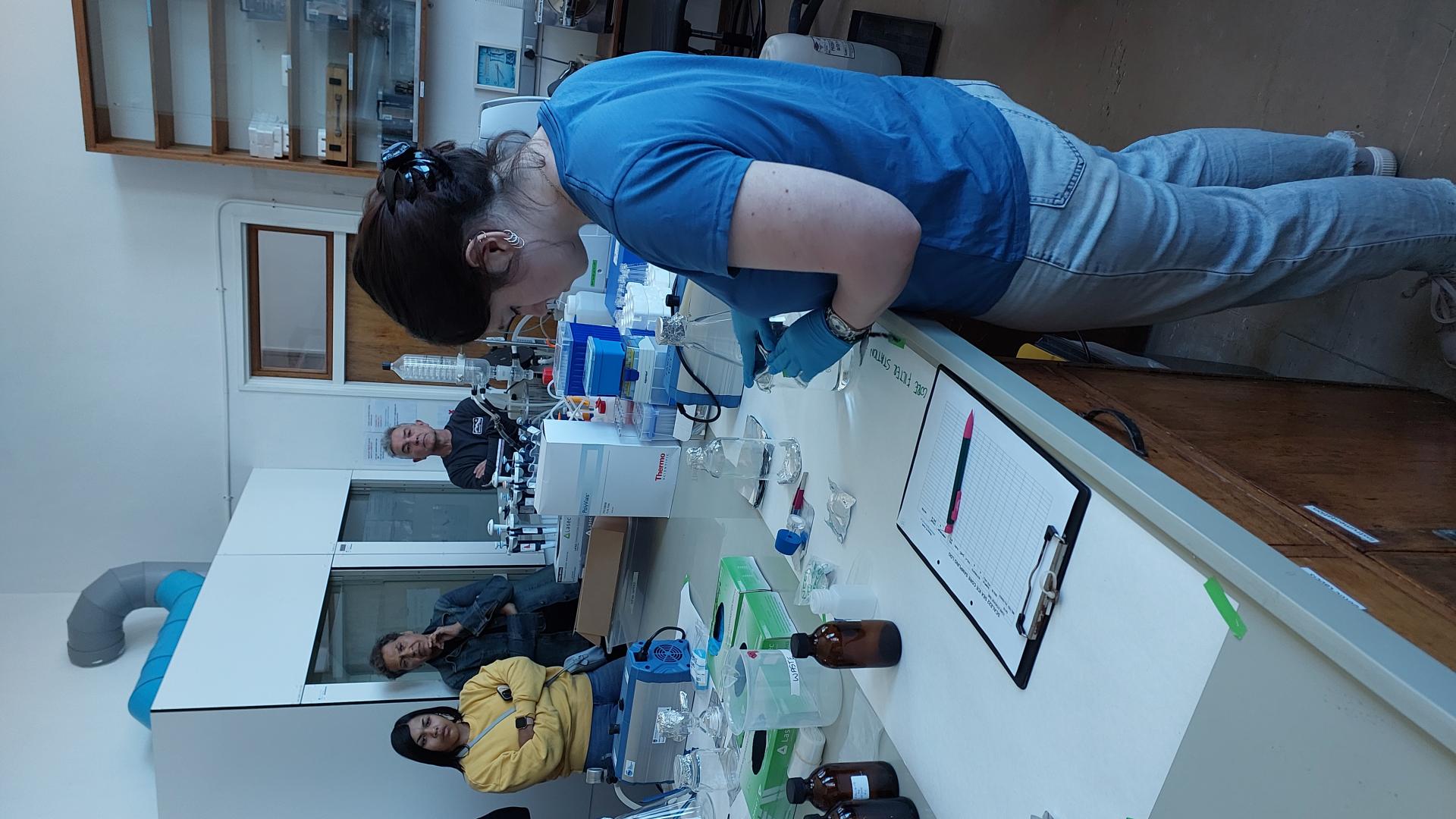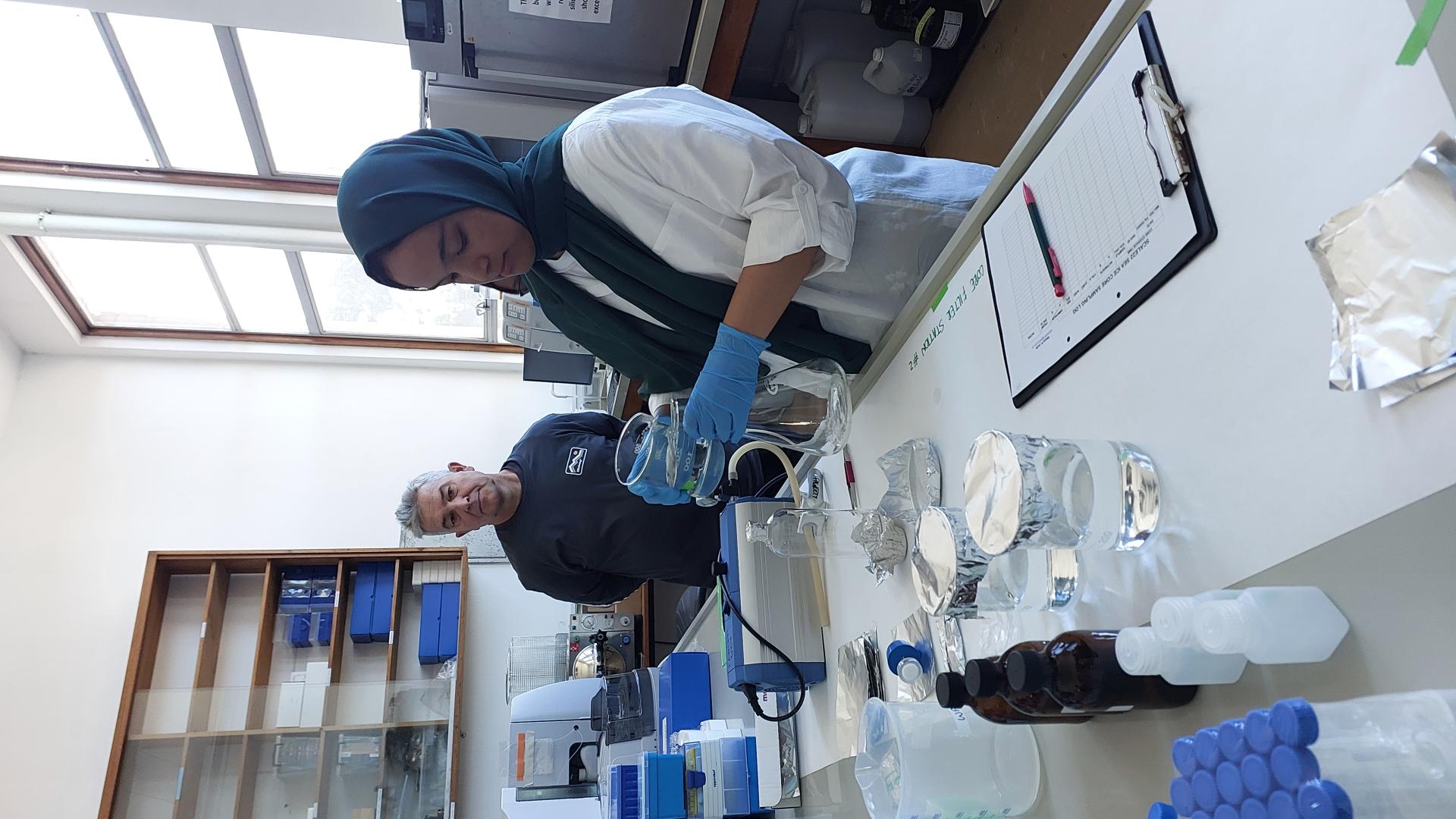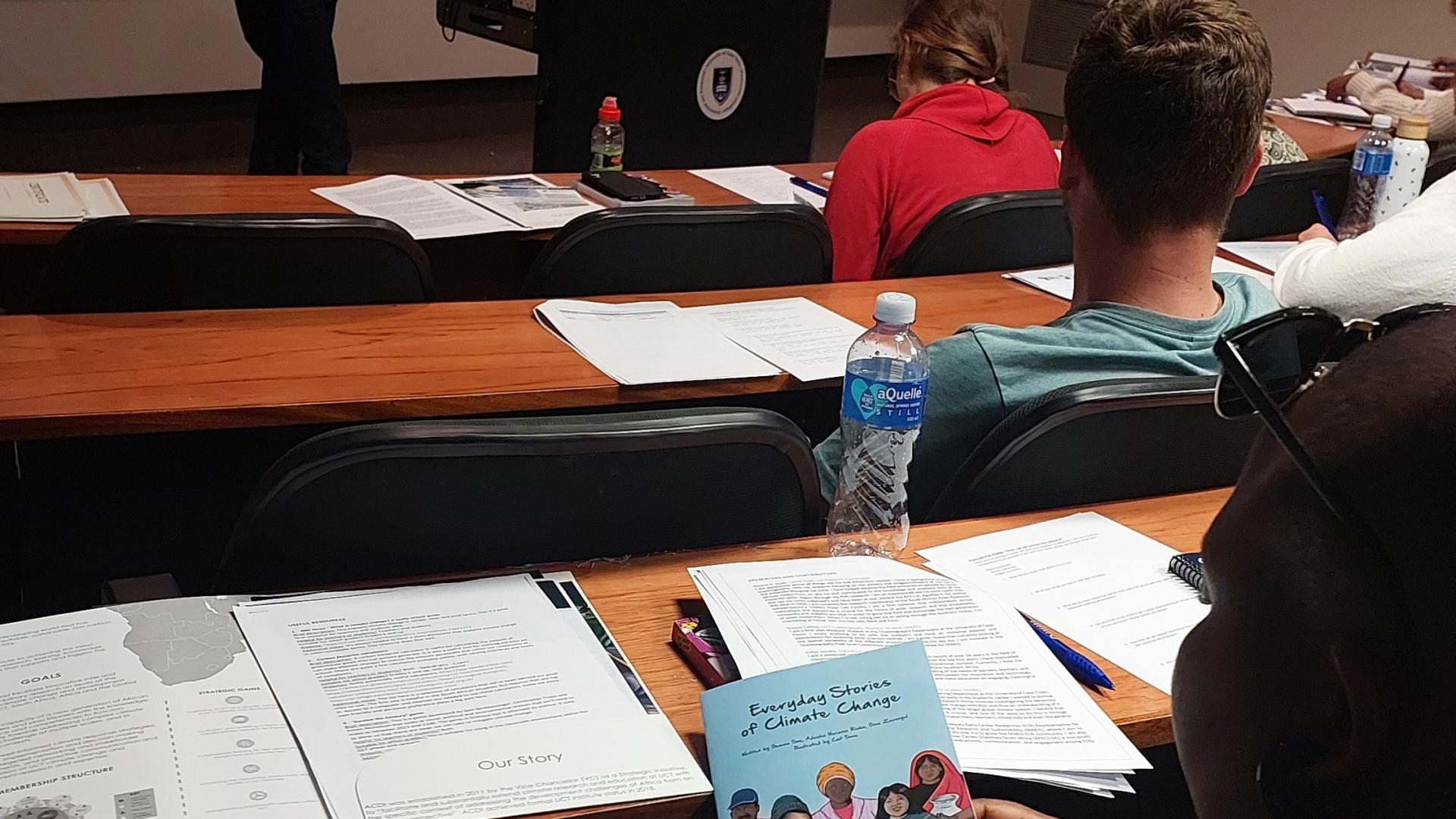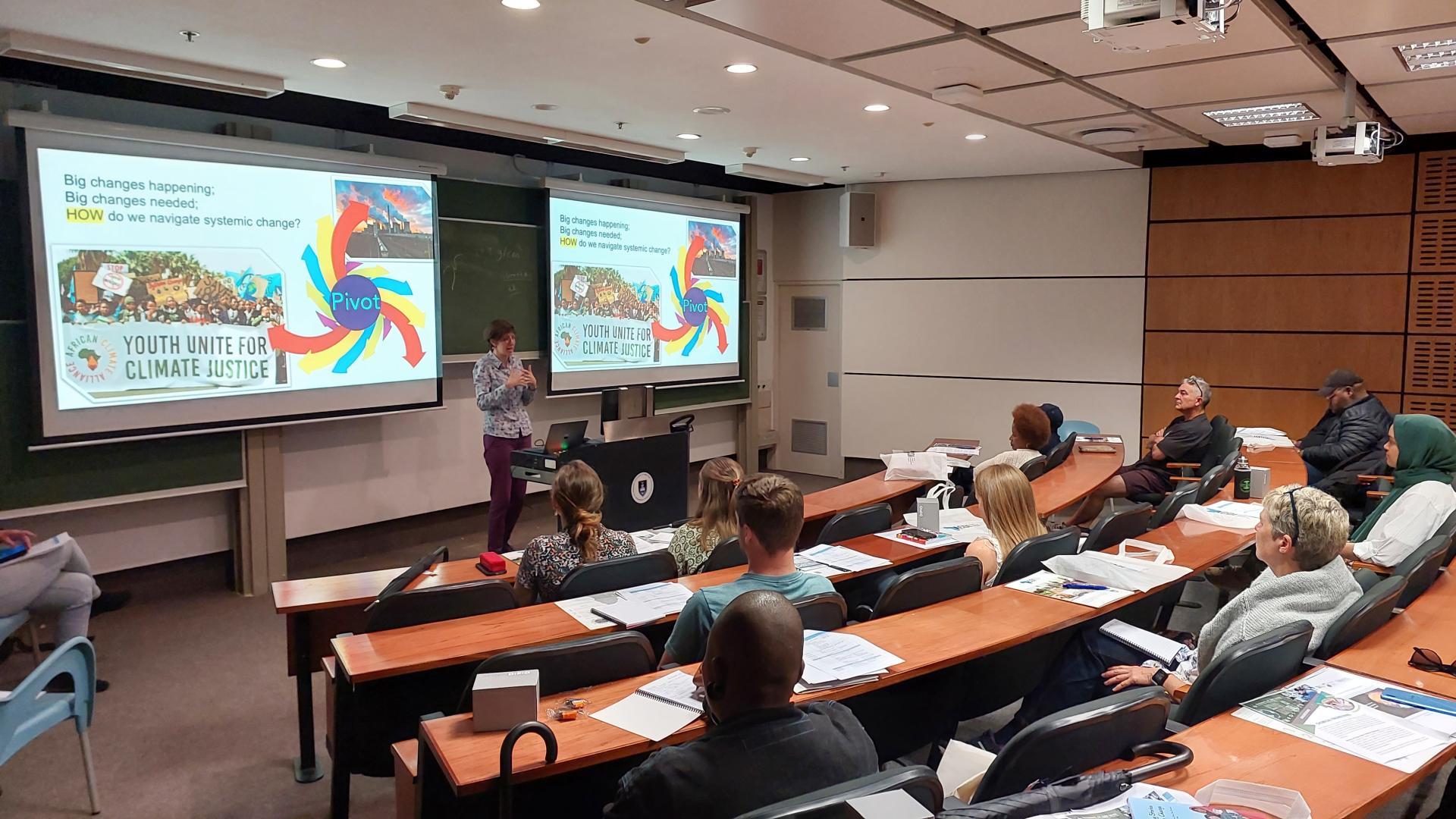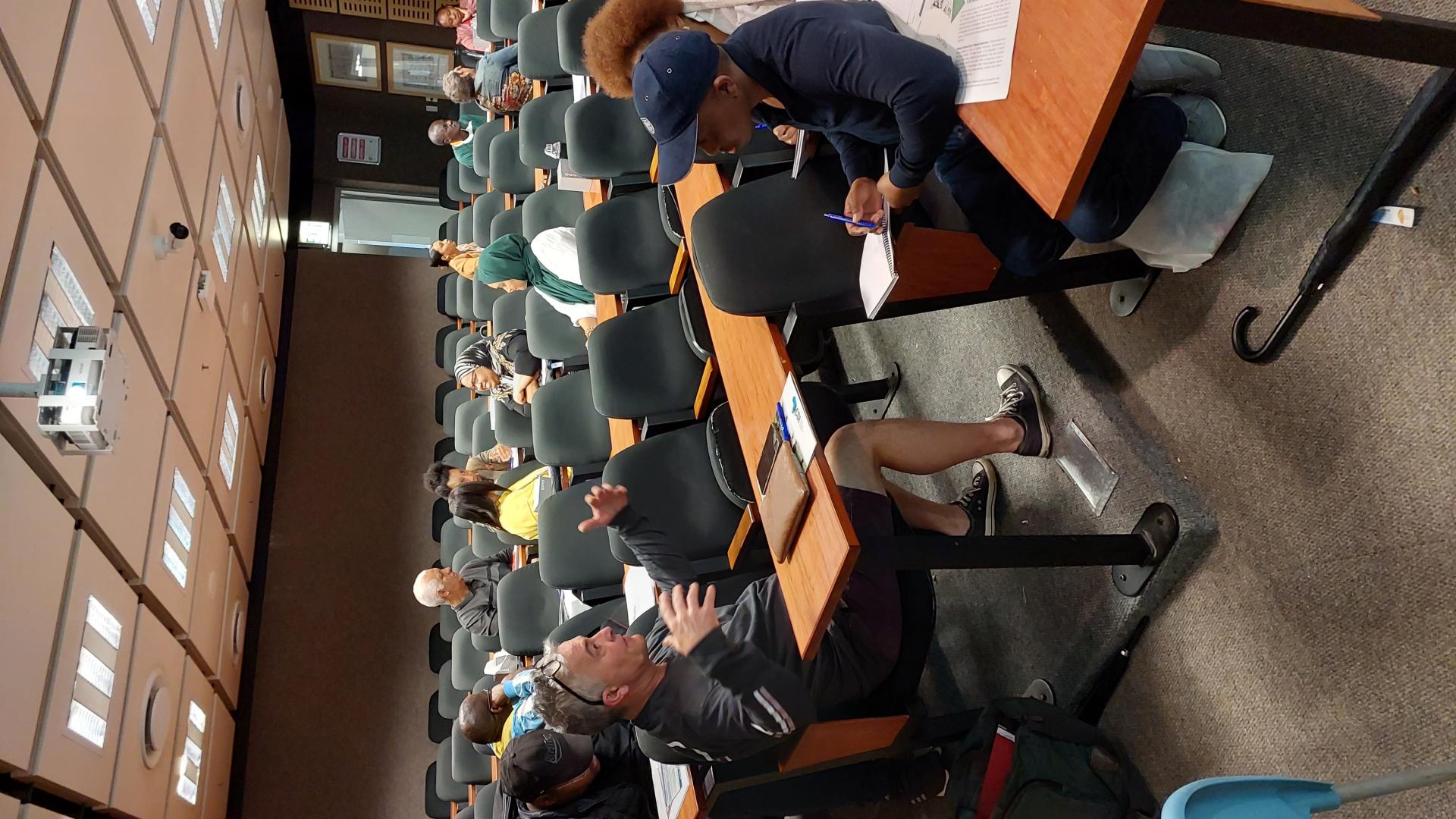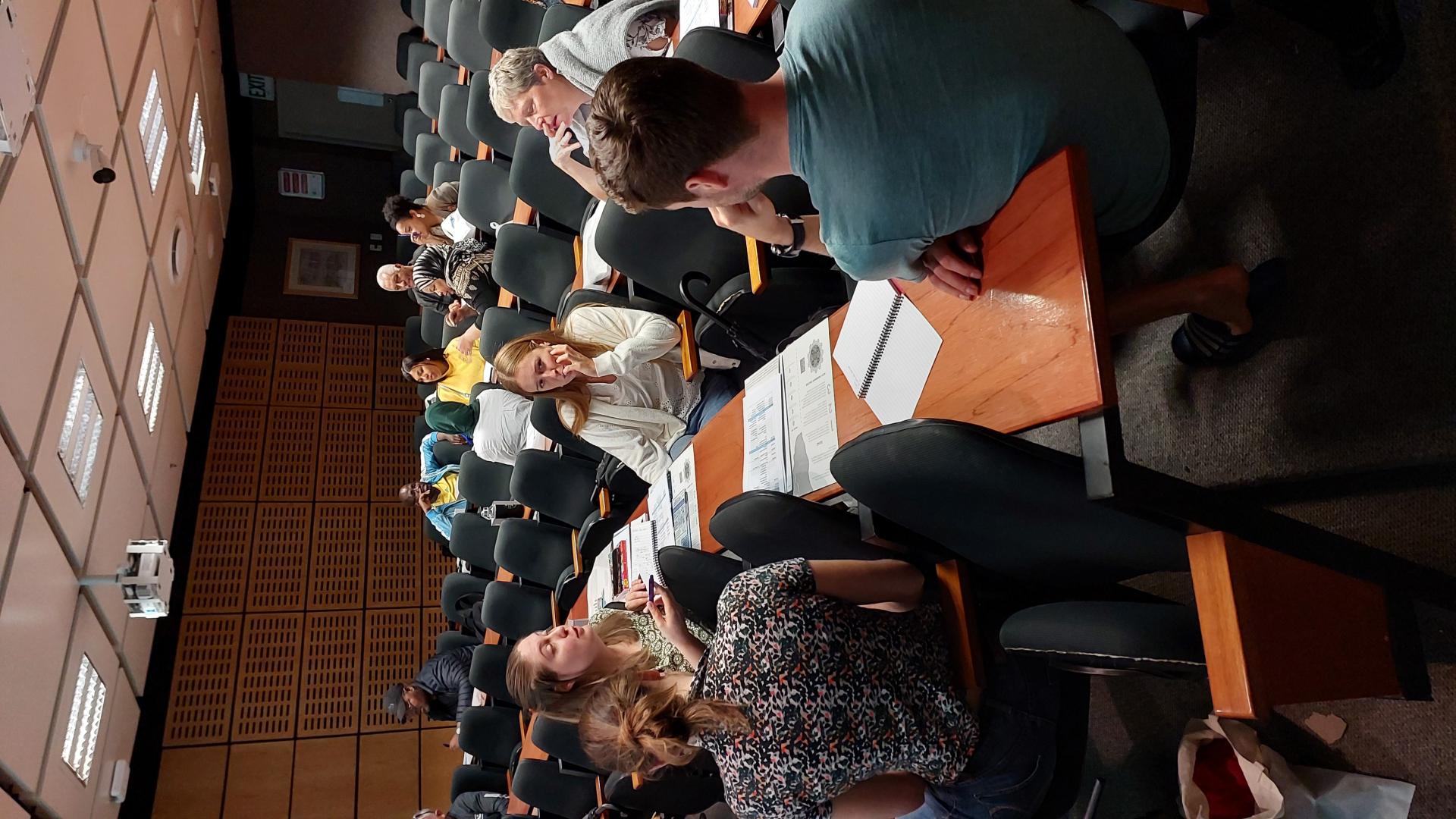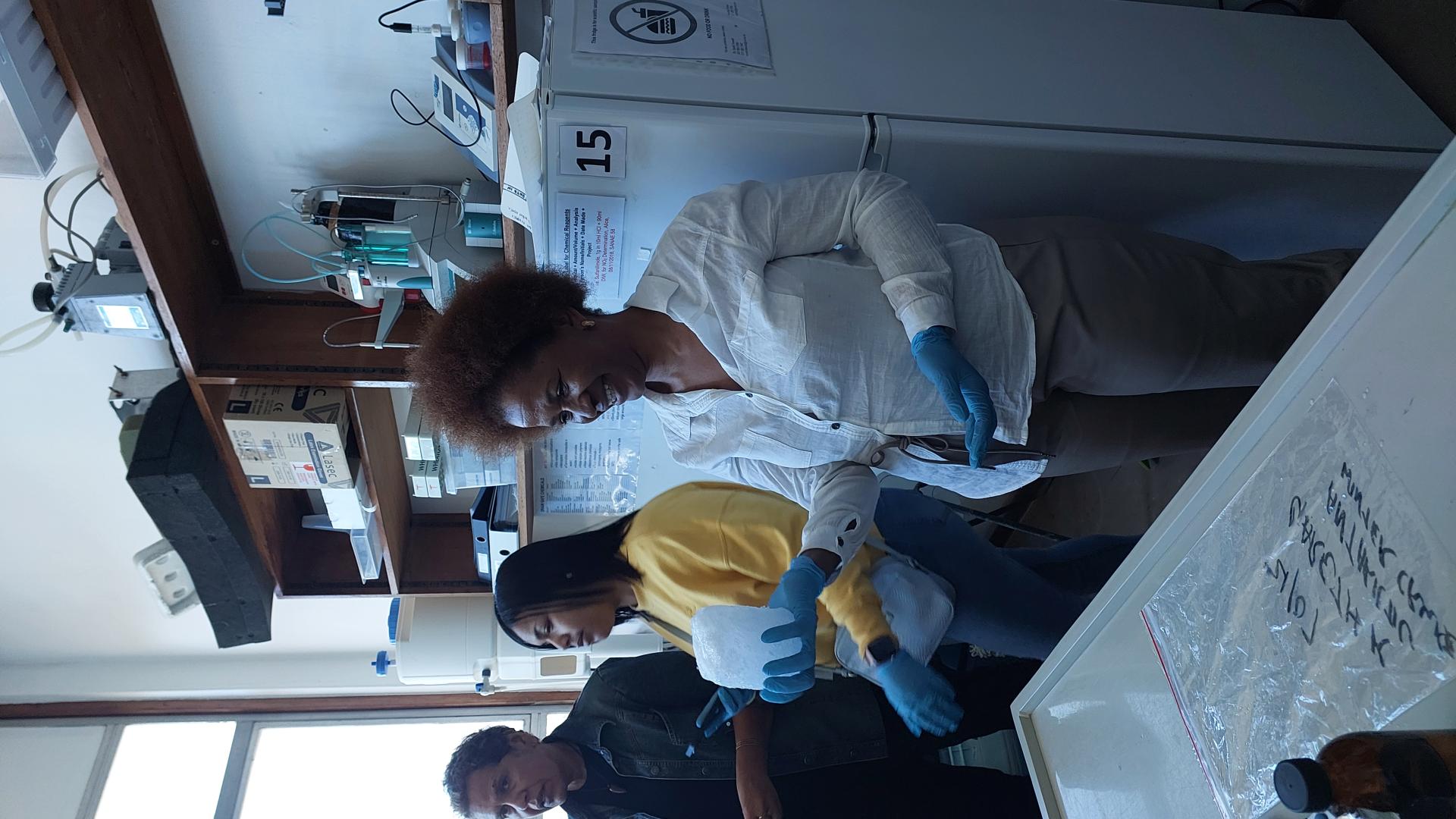ACDI-MARIS Climate Change Workshop for Teachers

On Saturday, 14 October 2023, several UCT-MARiS early career researchers had the opportunity to participate in running the ACDI-MARIS Climate Change Workshop for Teachers in the Chemical Engineering Seminar Room at the University of Cape Town. A jam-packed programme filled with informative talks on climate change mitigation and adaption methods by researchers from the African Climate and Development Initiative (ACDI), including interactive discussions and exploring and participating in laboratory demonstrations with UCT-MARiS.
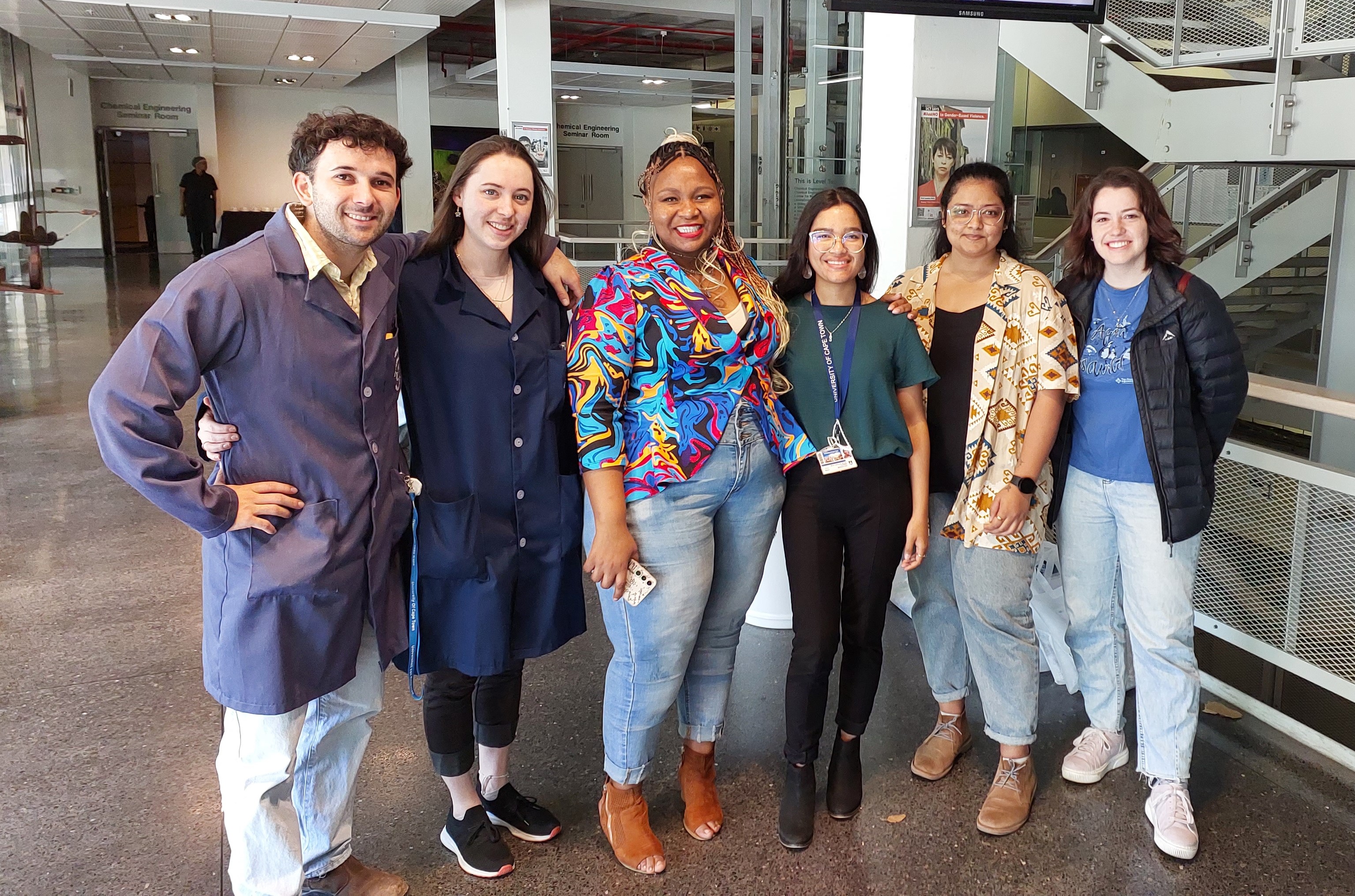
One of our Sea Ice Principal Investigators (PI), Dr Tokoloho Rampai, took to center stage in the chemical engineering seminar room to demystify the intricate world of Antarctic Sea ice research. With an audience full of eager teachers, she presented an informative talk focusing on the impacts that sea ice in the southernmost region of the globe, has on the larger climate and ocean systems.

Who would have thought the minuscule parts of sea ice and sea ice life could unleash ripples felt across the globe? As it turns out, size doesn’t matter as the small-scale details create the macro-scale magic of the largest seasonal change on earth.
The teachers were invited to the Chemical Engineering laboratory where Masters students, James van Niekerk and Hayley Swait put a spotlight on the innovative gadgets and ice-cutting tools used to study and test sea ice properties and the life within. PhD student, Safiyyah Moos provided a snapshot of the “use of digital image processing where pixels are more than squares as they are the building blocks of discovery into sea ice growth”.

Oceanography PhD student, Riesna Audh shares “As polar oceanographers, we are knowledgeable about the polar region and its influence on the global system. It was a privilege to share this knowledge with the educators at the workshop. We presented a short talk on the role of Antarctic sea ice in the global system and highlighted how global climate change influences the sea ice system and how we study the sea ice that grows around Antarctica, specifically for biogeochemical purposes”. This session was complemented by a lab demonstration by Masters student, Dayna Collins and herself in the UCT Marine Biogeochemistry Lab, where they simulated a sea ice core processing station and allowed the teachers to participate and understand the steps involved in preparing a sea ice core for biogeochemical analysis.


The educators' eagerness to participate in a workshop of this nature showcased their remarkable commitment to advancing their own knowledge of climate change for the betterment of their students. Their thoughtful questions and active engagement demonstrated a genuine thirst for understanding which created an incredible atmosphere. Their willingness to invest time and effort in such a workshop is a testament to their passion for nurturing young minds and instilling a deep appreciation for science and global climate change. The impact of their dedication on shaping the future generation of scientists cannot be overstated, and their students will undoubtedly benefit immensely from their commitment.

This opportunity to share the importance of scientific research reminds us of the crucial role of science communication, for knowledge gains its true power when shared.
We are grateful for the opportunity to contribute to this workshop. It was an honour to share our passion for Antarctic Sea ice biogeochemistry with such dedicated and enthusiastic educators. Their engagement and open-mindedness created an incredibly enriching experience for all involved. We truly value the opportunity to be a part of this collaborative learning environment, and we look forward to future opportunities to continue our shared mission of inspiring and empowering the next generation of scientists.
